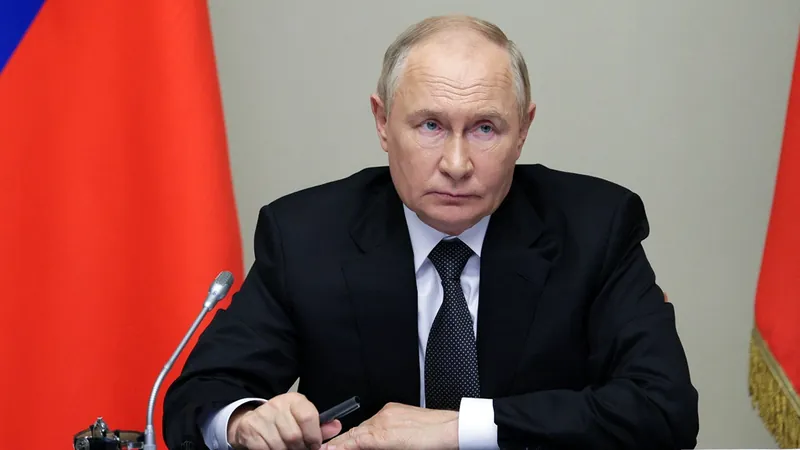
Escalating Tensions: Putin Expands Nuclear Response Doctrine as U.S. Increases Military Support for Ukraine
2024-09-26
Author: Ying
In a stark warning to the West, Russian President Vladimir Putin has dramatically changed the landscape of international military relations. He announced that any conventional attack on Russia, aided by a nuclear power, will be interpreted as a joint assault on the nation. This declaration highlights a dangerous shift that ignites fear of escalating conflicts.
This announcement coincides with the Biden administration’s commitment of an additional $375 million in security assistance to Ukraine. This latest funding package includes vital air-to-ground munitions, artillery, armored vehicles, and anti-tank weapons, enhancing Ukraine's defense capabilities against Russian advances.
Putin’s alarming statement was made during a meeting of Russia's Security Council, where he revealed revisions to the nation's nuclear doctrine. He asserted that these changes specifically articulate that any attack on Russia from a non-nuclear country—if it is backed by a nuclear power—will be treated as an act of war against the Russian Federation.
During the meeting, Putin elaborated on these updated nuclear guidelines, suggesting that the circumstances under which Russia might deploy nuclear weapons have been clarified. He indicated that nuclear forces could be activated in response to what he termed a "massive air attack."
He warned, "We will consider such a possibility when we receive reliable information about a massive launch of air and space attack assets crossing our state border," referring to various threats including strategic bombers, cruise missiles, drones, and hypersonic systems.
Experts have voiced grave concerns over these developments. Samuel Charap, a senior political scientist at RAND Corporation, indicated that any loosening of nuclear response policies by major powers invites unnecessary risk. He remarked, “Regardless of whether you see this as a bluff, it's dangerous when a major nuclear power shifts its conditions for nuclear force usage.”
The U.S. government remains resolute in its support for Ukraine. Secretary of State Antony Blinken reaffirmed, “The United States is committed to Ukraine’s defense against Russia’s brutal aggression.” He emphasized that this new military assistance will be deployed swiftly to bolster Ukraine's defenses and safeguard its sovereignty.
Adding to the intensity of ongoing negotiations, Ukrainian President Volodymyr Zelenskyy is scheduled to meet with President Biden and Vice President Kamala Harris in Washington. The discussions will focus on potentially enabling Ukrainian forces to utilize long-range weapons to target deeper inside Russia, raising the stakes in an already volatile situation.
As the world watches these developments unfold, the question remains: how will global powers respond to this precarious balance, and what implications will it have for peace and security in Europe and beyond?



 Brasil (PT)
Brasil (PT)
 Canada (EN)
Canada (EN)
 Chile (ES)
Chile (ES)
 España (ES)
España (ES)
 France (FR)
France (FR)
 Hong Kong (EN)
Hong Kong (EN)
 Italia (IT)
Italia (IT)
 日本 (JA)
日本 (JA)
 Magyarország (HU)
Magyarország (HU)
 Norge (NO)
Norge (NO)
 Polska (PL)
Polska (PL)
 Schweiz (DE)
Schweiz (DE)
 Singapore (EN)
Singapore (EN)
 Sverige (SV)
Sverige (SV)
 Suomi (FI)
Suomi (FI)
 Türkiye (TR)
Türkiye (TR)